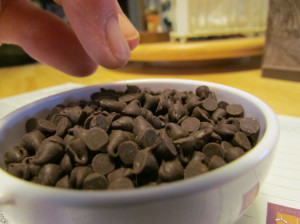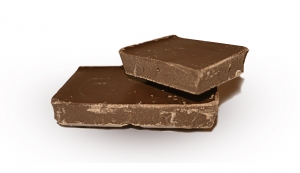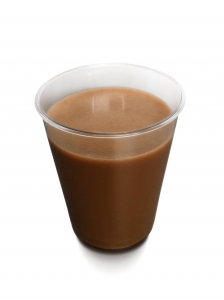Clarity at Base Camp
Sunday morning 9 am…..My eyes are focused on the snow in my driveway as I step onto my treadmill that sits in my garage….my ears filled with the sounds of the song “Afterlife” by Switchfoot. I slowly move the treadmill from 4.0 to 6.0 mph – my feet move faster – my breathing begins to increase – and I focus….It was in this moment that I realized I’m beginning the ascent from base camp to my new summit.
 Over the past 15 years I have successfully summitted many mountains – metaphorical of course. Unlike MOG’s very own Bill McCormick, I have yet to actually climb a mountain like Everest or Rainier. But I have overcome many obstacles – I have felt the desire to quit – I have been challenged by unfavorable conditions – and I have persevered. At the age of 21, I successfully completed my first marathon – the Maine Marathon, all while completing my senior year of collegiate soccer. I was competitive, driven and trained like a madwoman. It was one of the most gratifying times in my life… second of course to marrying my husband and starting our family.
Over the past 15 years I have successfully summitted many mountains – metaphorical of course. Unlike MOG’s very own Bill McCormick, I have yet to actually climb a mountain like Everest or Rainier. But I have overcome many obstacles – I have felt the desire to quit – I have been challenged by unfavorable conditions – and I have persevered. At the age of 21, I successfully completed my first marathon – the Maine Marathon, all while completing my senior year of collegiate soccer. I was competitive, driven and trained like a madwoman. It was one of the most gratifying times in my life… second of course to marrying my husband and starting our family.
In my mind I have always felt that unless I get back to that place, than what is the point of my exercise? If I was not training for something, I lost my focus. Those of you that have had children know how that can affect your body in so many ways. It has been years since I have felt like myself physically – constantly challenged by the changes that have occurred from carrying my children.
 At this very moment, it is not envisioning crossing the finish line at the marathon that pushes me to continue running on the treadmill. It is the face of my 5 year old son who comes around the corner and smiles at me with his sneakers on and asks me “Mom! Are you almost done so I can exercise!?” It is the vision of all of our MOG members who inspire us in their daily dedication to walking through our doors and changing their lives. It is the passion that every one of my co-workers embodies in our daily quest to have a positive impact on one person’s life.
At this very moment, it is not envisioning crossing the finish line at the marathon that pushes me to continue running on the treadmill. It is the face of my 5 year old son who comes around the corner and smiles at me with his sneakers on and asks me “Mom! Are you almost done so I can exercise!?” It is the vision of all of our MOG members who inspire us in their daily dedication to walking through our doors and changing their lives. It is the passion that every one of my co-workers embodies in our daily quest to have a positive impact on one person’s life.
We all have mountains to climb within a day, a week or a year. Today I found clarity at my base camp as I stepped onto my treadmill and hit start. I could not be more excited about beginning one of the most important climbs of my life. Today, in this moment, I exercise for me and for my family. I am a better mom when I exercise. I am a better wife when I exercise. I am a happier person when I exercise. It is not easy. The days are filled with the endless pursuit to make it through my massive to do list – but alas, I realize that mountain I will never summit. But it does not matter for I am dedicated as I write this today that I will summit this mountain I call exercise one day at a time – and realize that each day I climb will get easier and more exciting. I will be invigorated to challenge myself in ways I never thought I could – and then peacefully descent into my life with confidence and a renewed sense of self because of the one thing that will always make me better……Exercise.
Jaclyn Chadbourne, MA is a Clinical Exercise Physiologist and Co-Owner of the Medically Oriented Gym (M.O.G.) in South Portland, Maine. With a passion for sustainable healthy living and desire to advocate for patient-centered care, Jaclyn works to help the M.O.G. support community resources for all special populations and to implement and oversee clinical protocols.


 • Water is the solvent for biochemical reactions. Your body cannot function without sufficient water, as noted by the fact that athletes die from dehydration.
• Water is the solvent for biochemical reactions. Your body cannot function without sufficient water, as noted by the fact that athletes die from dehydration. • Coffee is a popular source of water. Although once thought to have a diuretic effect, current research indicates coffee (in amounts normally consumed) hydrates as well as water over a 24-hour period. That is, after drinking coffee, you may urinate sooner, but you will not urinate more than you consume. Army research on caffeine and dehydration confirms coffee is an acceptable source of fluids for athletes, even during exercise in the heat. Hence, coffee and other caffeinated beverages such as tea or cola count towards your water intake.
• Coffee is a popular source of water. Although once thought to have a diuretic effect, current research indicates coffee (in amounts normally consumed) hydrates as well as water over a 24-hour period. That is, after drinking coffee, you may urinate sooner, but you will not urinate more than you consume. Army research on caffeine and dehydration confirms coffee is an acceptable source of fluids for athletes, even during exercise in the heat. Hence, coffee and other caffeinated beverages such as tea or cola count towards your water intake. st athletes who lose more than 2% of their body weight (3 lbs for a 150-pound athlete) lose both their mental edge and their ability to perform optimally in hot weather. Yet, during cold weather, you are less likely to experience reduced performance, even at 3% dehydration. Three to 5% dehydration does not seem to affect muscle strength or performance during short intense bouts of anaerobic exercise, such as weight lifting. But distance runners slow their pace by ~2% for each percent body weight lost by dehydration. That means, if you weigh 150 pounds and lose 3 pounds sweat (2% dehydration), your 8-minute mile slows to an 8:19 pace. That’s preventable!
st athletes who lose more than 2% of their body weight (3 lbs for a 150-pound athlete) lose both their mental edge and their ability to perform optimally in hot weather. Yet, during cold weather, you are less likely to experience reduced performance, even at 3% dehydration. Three to 5% dehydration does not seem to affect muscle strength or performance during short intense bouts of anaerobic exercise, such as weight lifting. But distance runners slow their pace by ~2% for each percent body weight lost by dehydration. That means, if you weigh 150 pounds and lose 3 pounds sweat (2% dehydration), your 8-minute mile slows to an 8:19 pace. That’s preventable!


 However, less-processed dark chocolate can be considered a healthier choice. Chocolate is made from cocoa, a plant that is a rich source of health-protective phytochemicals (just like you’d get from fruits, vegetables, and whole grains). Two tablespoons natural cocoa power (the kind used in baking) offers the antioxidant power of 3/4 cup blueberries or 1.5 glasses red wine. Unfortunately, dark chocolate has a slightly bitter taste and most people prefer the sweeter milk chocolate, a poorer source of phytochemicals. (We need to raise our children on dark chocolate, so they will they learn to prefer it!)
However, less-processed dark chocolate can be considered a healthier choice. Chocolate is made from cocoa, a plant that is a rich source of health-protective phytochemicals (just like you’d get from fruits, vegetables, and whole grains). Two tablespoons natural cocoa power (the kind used in baking) offers the antioxidant power of 3/4 cup blueberries or 1.5 glasses red wine. Unfortunately, dark chocolate has a slightly bitter taste and most people prefer the sweeter milk chocolate, a poorer source of phytochemicals. (We need to raise our children on dark chocolate, so they will they learn to prefer it!)

